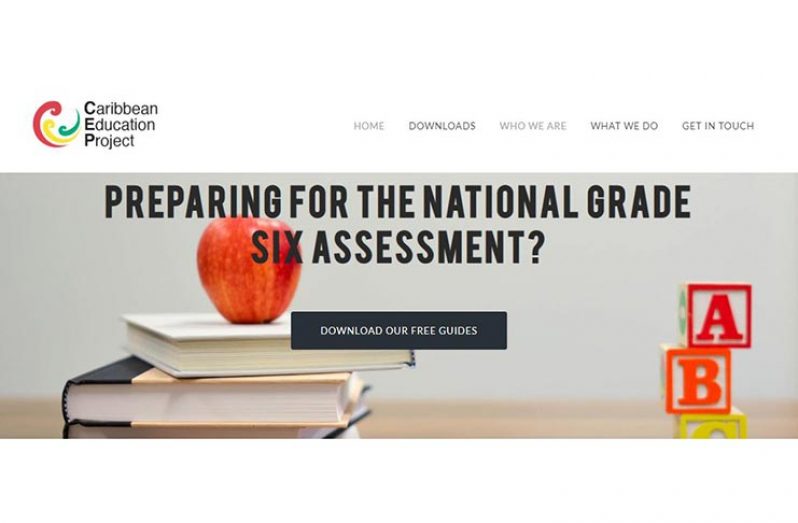– Seeking to provide much-needed support to pupils in hinterland, rural areas
STUDENTS from universities in the United States, in partnership with some here at the University of Guyana (UG) have rolled out a Caribbean Education Project (CEP) in an effort to provide free revision resources for pupils preparing for the upcoming National Grade Six Assessment (NGSA).
“We’ve taken all of the material found Online, ran through each and every detail on the materials, and produced very high-quality detailed explanations for students who are looking for self-study,” said CEP pioneer and Harvard University’s Shawn Shivdat.
Essentially, through the CEP, learning materials are being made available for the pupils to learn about or revise topics and concepts relevant to the curriculum being assessed through the NGSA. All of the materials can be found Online and downloaded free of cost at: https://www.caribed.org/
The aim is to make the materials available to children in need, particularly those in rural and hinterland regions who may not have ready or consistent access to Online or other multimedia avenues to engage in learning and revision.
Guyana’s secondary school entrance examination, the NGSA is slated for July 1 and 2. Initially, it was to have been held on April 8 and 9, but due to the COVID-19 breakout here, and the resulting lockdown of schools, it was postponed.
During the lockdown period which lasted the better part of three months, those pupils expected to write the examination would have been at home, where it was hoped that they would revise their schoolwork or utilise the multimedia resources provided by the Ministry of Education and schools.
Guyana, however, is characterised by various educational disparities, largely attributed to the differences in geographic locations.
EDUCATIONAL SETBACKS
These disparities are reflected in children’s ability to access multimedia resources, particularly those on the Internet. Added to that, numerous studies on the ‘lockdown’ measures occasioned by the pandemic show that not all households are conducive to learning. In the Guyana context, this is not unbelievable.
Shivdat explained that he and his team of university students in the US are all too aware of the unique challenges arising from the pandemic, and noted that he can only imagine what this must be like for the young children preparing to write the NGSA. He also acknowledged that Guyana’s elections conundrum does cause some amount of anxiety among the population at large.
“We feel it is almost unreasonable to put students in front of a standardised exam that is as ‘high-stakes’ as the NGSA, which serves as a secondary placement examination,” Shivdat said.
Nonetheless, given that children are required to sit these examinations lest they be placed into schools in their locale, he related that the group is hoping to alleviate the burden on both parents and offspring.
“Our primary goal right now is to produce as much content as possible, and work with partners on the Board to have it distributed to parts of Guyana where students may not have access to the Internet,” Shivat said.
To help disseminate the materials being assembled, the CEP group in the US has partnered with UG students, and is seeking the assistance of other locals, particularly those into publishing, with printing.
Farnaz Baksh, a UG student, told the Guyana Chronicle that a small team of current and graduate UG students has been assembled to help with the distribution to various primary schools in Regions Five (Mahaica-Berbice) and Six (East Berbice- Corentyne).
The challenge, however, lies in getting the materials printed so that they can be disseminated to the children.
The group has also partnered with The Caribbean Voice (TCV), and is seeking to take this project to other Caribbean countries which are also contending with having their Secondary Entrance Examinations amidst the pandemic.
For those interested in contributing to the project, contact can be made via email at info@caribed.org. Alternatively, Shawn can be contacted on WhatsApp, using the number: +1-404-406-9638, or by messaging him on Facebook on his profile: Shawn Shivdat. Contact can also be made with the Caribbean Voice via email: caribvoice@aol.com








.png)







